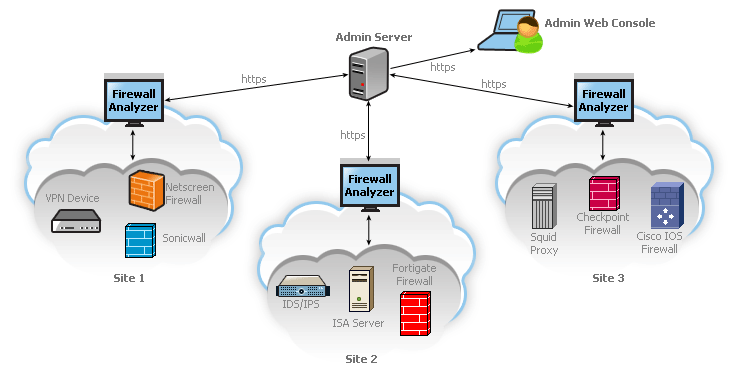A firewall is a network security system designed to prevent unauthorized access to or from a private network. Firewalls can be implemented as both hardware and software, or a combination of both. Network firewalls are frequently used to prevent unauthorized Internet users from accessing private networks connected to the Internet, especially intranets. All messages entering or leaving the intranet pass through the firewall, which examines each message and blocks those that do not meet the specified security criteria.
A VPN appliance is a network device equipped with enhanced security features. Also known as an SSL (Secure Sockets Layer) VPN appliance, it is in effect a router that provides firewall protection, load balancing, authorization, authentication and encryption for VPNs.
A virtual private network (VPN) is a network that is constructed using public wires — usually the Internet — to connect to a private network, such as a company’s internal network. There are a number of systems that enable you to create networks using the Internet as the medium for transporting data.

ADVANTAGES OF FIREWALL
Thorough Traffic Blocking
Firewall allows you to block or unblock all connection requests, helps block computer worms and viruses and creates a security log of successful and unsuccessful attempts to connect to your computer.
Security Center Coordination
Some hackers may be after your high-speed connection so that they can send malicious viruses and worms, blackening your reputation. Other intruders have the power to destroy your operating system on a whim. A firewall works as a barrier, or a shield, between your computer network and internet.
ADVANTAGES OF VPN
Cost Savings
A VPN can save an organization money in several situations:
- eliminating the need for expensive long-distance leased lines
- reducing long-distance telephone charges
- offloading support costs
VPN Network Scalability
The cost to an organization of building a dedicated private network may be reasonable at first but increases exponentially as the organization grows. A company with two branch offices, for example, can deploy just one dedicated line to connect the two locations, but 4 branch offices require 6 lines to directly connect them to each other, 6 branch offices need 15 lines, and so on.
Internet-based VPNs avoid this scalability problem by simply tapping into public lines and network capability readily available. Particularly for remote and international locations, an Internet VPN offers superior reach and quality of service.
